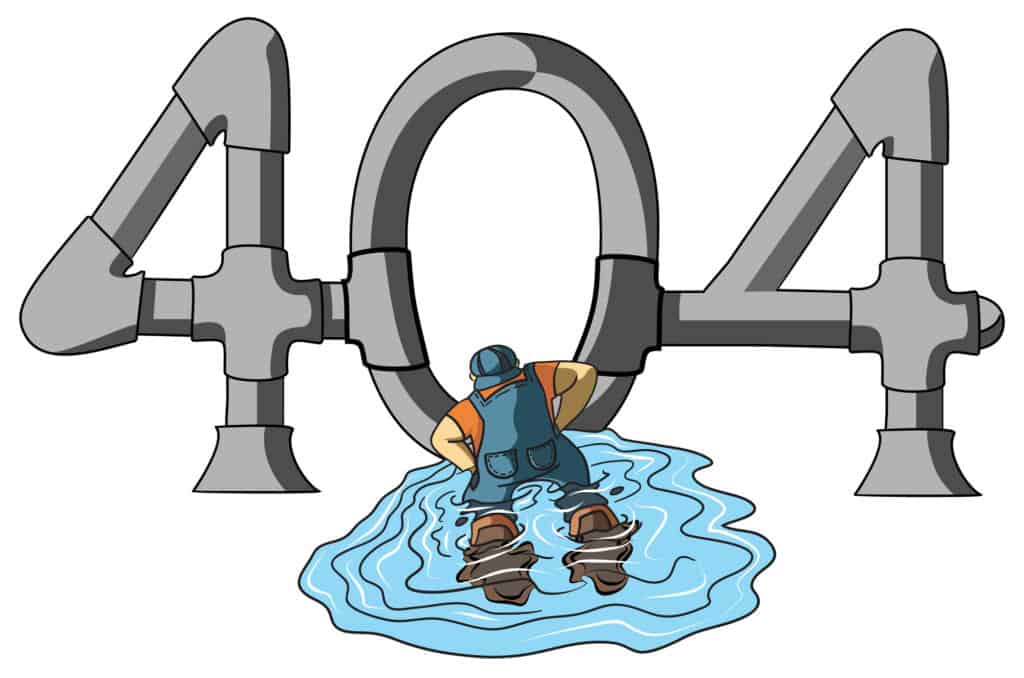Are you worried about your bounce rate?
We understand, it can seem like an intimidating statistic.
Google analytics can be overwhelming to look at and the bounce rate isn’t always a great indication of how well your site is performing.
Follow us down the proverbial rabbit hole to explore the usefulness of bounce rate statistics.
Let’s also take a look at some other statistics that can seem quite daunting.
What Is Bounce Rate?
Bounce rate refers to the part of your traffic that is coming onto your site and leaving quickly after opening the page.
The statistic can be fairly inaccurate for a whole number of reasons.
It isn’t particularly helpful due to the fact that it includes the metric for all of the pages on your site.
This means hidden pages and landing pages are also included in the metric, skewing the data.
Any page that utilises Google Analytics tracking codes will be included in the overall bounce rate calculation.
Bounce rate can be affected by a whole host of reasons including algorithmic changes on Bing or Google, so being presented with a flat figure is often not very helpful.
If the algorithm is updated this can mean the way that people find your site can change.
This also means that you might not just be reaching your target audience.
It’s also important to remember that the higher the level of traffic, the higher the bounce rate.
It’s not always important how high this bounce rate is if you’re still reaching your target audience and getting quality leads.
Think of the bounce rate as people who have gotten lost on the web. The right directions that they’re looking for aren’t always going to be on your site.
If you’re selling apples online and someone is looking for pineapples, and they stumble upon your page then they leave after realising this mistake it will increase your bounce rate.
You won’t be able to help them because they don’t want apples and therefore there’s nothing you can do about the increase of your bounce rate.
It’s important to take all of the statistics from Google analytics with a pinch of salt.
Can The Bounce Rate Be Useful?
The bounce rate can be an indicator of something going slightly wrong.
Despite being unreliable, you can also get a sense of what pages are performing well and which ones aren’t performing quite so well.
We still want to make sure that you aren’t obsessing over this data. It can be important to know what’s happening on your site but it’s not the most important statistic.
Digging into individual pages is the way to make use of this information. (Behaviour-> Site Content -> All Pages)
By comparing pages against each other you can learn which pages are causing the highest bounce rate.
It’s important to keep in mind a high bounce rate on a page can indicate a couple of things:
- The page isn’t accurately showing what the audience had searched for.
- People are finding the information that they’re looking for quickly on your page.
Not all reasons for a high bounce rate are negative, such as quickly accessible information and a higher general influx of traffic.
You can always find a way to make data useful, but it can also become overwhelming very quickly, so remember to take a step back and keep perspective.
What If One Of My Pages Has A High Bounce Rate
The first thing to do is not panic. Like we’ve already explained this can be caused by a whole variety of reasons.
This could indicate an issue in terms of incorrect categorisation through SEO, or something as simple as a badly worded headline.
It could also indicate something that has gone seriously wrong but has been unnoticed by you but evidently not been unnoticed by your online audience.
It’s very common for landing pages to have a high bounce rate, but that doesn’t necessarily mean they’re bad or need reworking.
A landing page will bring in a wide scope of people and then it depends on what the individual is looking to whether they explore deeper into your website.
If you think that your bounce rate is much higher than it should be it may be worth checking out a site test like Test My Site at ThinkWithGoogle.com.
It could be that your site isn’t very well optimised and it is in need of a review.
Oftentimes pages haven’t been formatted with mobile view in mind and this can cause an abnormally high bounce rate.
You would be surprised with how often this happens, especially when some sites depend on the traffic from mobile users.
This immediately excludes a whole load of your audience from being able to access your site, ultimately decreasing your potential leads.
Analytics Are Worth Your Time
The bounce rate of your site is something to keep in mind but it isn’t everything.
It’s worth comparing your average site sessions and looking at what impacts this.
For example, certain topics can draw in larger audiences and may provide pages that people spend longer wanting to read.
Writing blogs is an effective way to keep your audience up to date but also to keep them interested.
A blog that has a personality is another way to ensure your readers aren’t overwhelmed by tediously presented information.
The session duration can give an accurate representation of how much your audience is engaging with your content.
Use this as a springboard for deciding what to write about in the future.
Tools like SEMrush can also give a great indication for what people are searching for in your general area.
What Should You Do Next?
Analytics can be a minefield and we know that sometimes they don’t always give you what you’re expecting.
Bounce rates are a great start but they aren’t everything.
We love SEO and blog writing and want to help you.
Why not get in touch today and find out how we can help you.
This is an expanded version of the blog Google Analytics: My Bounce Rate Seems High, What Can I Do to Reduce It? published on the 5th October 2020, you can read it here.














